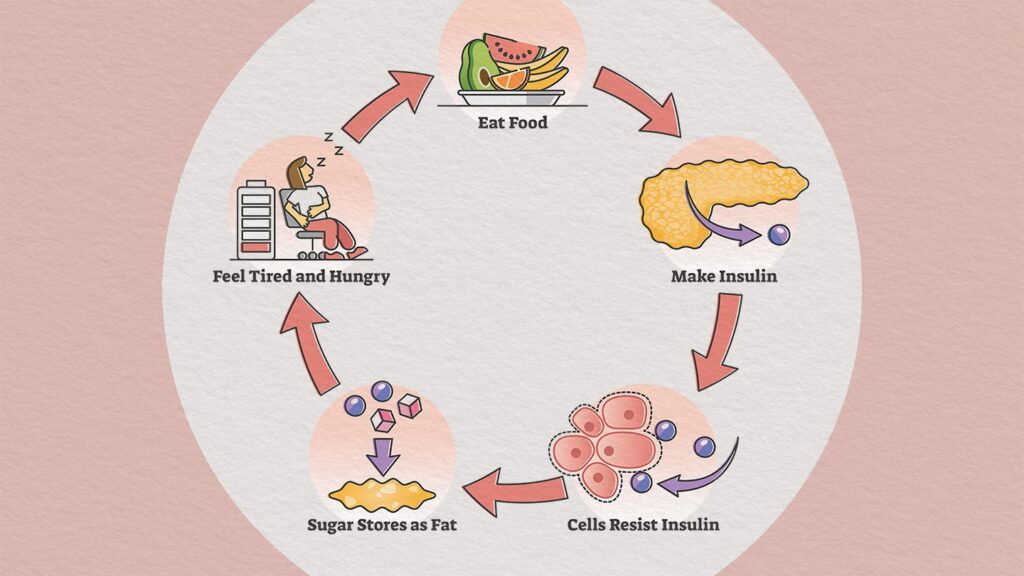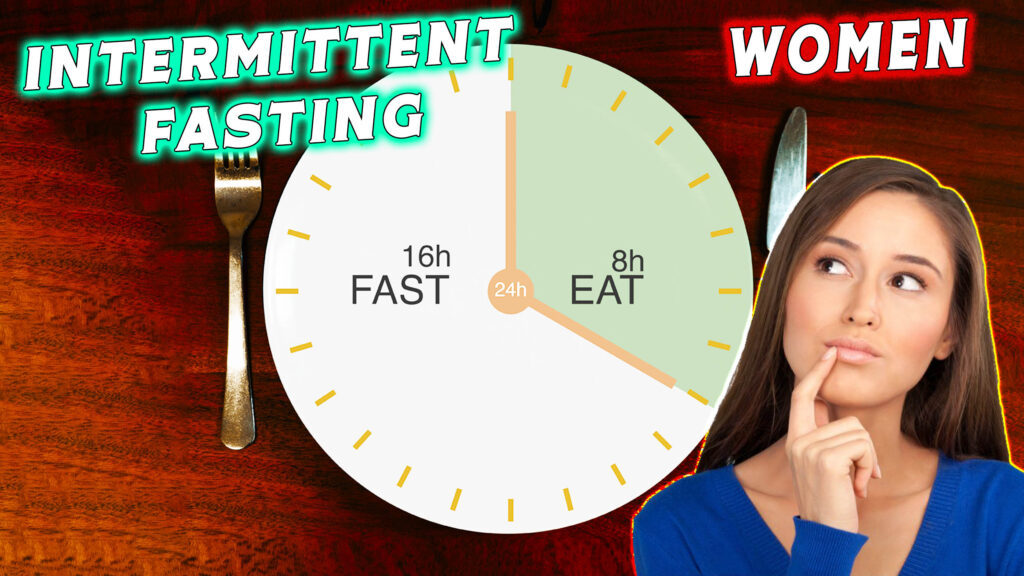Intermittent fasting (IF) has gained significant popularity in recent years as a potential tool for weight management, improved metabolic health, and various other health benefits. While IF is often touted as a one-size-fits-all approach, it’s essential to recognize that women’s bodies can respond differently to fasting regimens than men’s. In this article, we will dive deep into the topic: intermittent fasting for women, focusing on its utilizations and considerations for women for maximum health benefits.
What is Intermittent Fasting?
Intermittent fasting is not a diet but rather an eating pattern that alternates between periods of fasting and eating. The primary idea behind IF is to cycle between periods of consumption and fasting, thereby giving the body a break from continuous digestion and allowing it to tap into stored energy sources, primarily fat. Common fasting windows include 16/8 (16 hours of fasting with an 8-hour eating window), 5:2 (eating normally for five days and drastically reducing calorie intake on two non-consecutive days), and the 24-hour fast. If you want to know everything about intermittent fasting in general, its methods, benefits, drawbacks & how to start it then click here.
Benefits of Intermittent Fasting for Women
1. Weight Management
One of the primary reasons individuals turn to intermittent fasting is for managing their bodyweight. The structured fasting periods can create a calorie deficit, aiding in weight loss. Intermittent fasting for women can be a valuable tool to shred the extra unhealthy fat from their bodies. Studies have shown that IF can lead to reductions in body weight and fat mass while preserving lean muscle mass.

It’s important to note that individual responses vary, and the effectiveness of IF for weight management depends on various factors, including genetics and adherence to the chosen fasting method.
2. Improved Insulin Sensitivity
Insulin sensitivity plays a crucial role in regulating blood sugar levels. Women with insulin resistance or those at risk of type 2 diabetes may benefit from IF. Intermittent fasting for women can enhance insulin sensitivity, making it easier for cells to take in glucose, thereby reducing the risk of insulin-related disorders.

Enhanced insulin sensitivity can be especially advantageous for women with polycystic ovary syndrome (PCOS), a condition often associated with insulin resistance.
3. Hormone Regulation
Hormones play a vital role in women’s health, and some studies suggest that intermittent fasting for women & for men too can positively influence hormone levels. It may lead to improved insulin, growth hormone, and norepinephrine levels. Balanced hormone levels can contribute to better fat metabolism and muscle retention.

However, it’s essential to approach IF with caution if you have hormonal imbalances or specific medical conditions that affect your hormones. So, it is advisable to consult with a healthcare professional before starting IF as your new eating pattern.
4. Cellular Repair and Longevity
During fasting, the body undergoes a process called autophagy, where it clears out damaged cells and regenerates new ones. This cellular repair mechanism can contribute to healthier skin, improved immune function, and even longevity. While these benefits are not exclusive to women, they are essential for overall well-being.
Also Read: 10 Incredible Benefits of Sauna after Workout!
5. Cognitive Benefits
IF may have cognitive benefits, including enhanced brain function. Some studies suggest that fasting can stimulate the production of brain-derived neurotrophic factor (BDNF), a protein associated with cognitive health. Additionally, reduced inflammation, a common result of fasting, may protect the brain from neurodegenerative diseases.

Intermittent Fasting for Women: Considerations
While intermittent fasting offers several potential benefits, it’s essential for women to approach it with careful consideration and mindfulness.
1. Hormonal Fluctuations
Women experience cyclical hormonal changes throughout their menstrual cycle. These changes can affect how they respond to fasting. Some women may find it more challenging to fast during certain phases of their cycle, such as menstruation. It’s crucial to listen to your body and adapt your fasting schedule accordingly.

2. Potential Impact on Fertility
Women who are actively trying to conceive should approach intermittent fasting cautiously. Extreme fasting regimens can disrupt hormonal balance and affect reproductive health. If you are planning to become pregnant, consult with a healthcare provider to determine the best approach for you.
3. Nutrient Intake
Women must prioritize nutrient-dense foods during their eating windows to ensure they meet their nutritional needs. Adequate intake of vitamins, minerals, and essential nutrients is essential for overall health, especially for women who may have unique nutritional requirements, such as iron and calcium.

4. Listen to Your Body
We already know that everyone’s body is different and so, what works well for one person may not be that much beneficial for another. For this reason, you should pay close attention to how your body responds to intermittent fasting. If you experience extreme fatigue, dizziness, or other adverse effects, it may not be the right approach for you. Consider adjusting your fasting schedule or exploring alternative dietary strategies.
5. Individual Variability
The key to successful intermittent fasting lies in finding an approach that aligns with your body and lifestyle. Experiment with different fasting schedules and monitor how your body responds. Seek guidance from a registered dietitian or healthcare professional if you have specific health concerns or medical conditions.
Intermittent Fasting Protocols for Women
16/8 Method
This is one of the most popular methods of intermittent fasting for women. With this method, you have to fast for 16 hours while having an 8-hour eating window. Many women find this approach manageable and effective.
14/10 Method
If a 16-hour fast feels too challenging, consider starting with a 14-hour fast and gradually extending the fasting window as your body adapts.
Alternate-Day Fasting
Some women may benefit from alternating between fasting days and regular eating days. However, this approach can be more extreme and may not be suitable for everyone.
Time-Restricted Eating
Instead of focusing on fasting, you can adopt a time-restricted eating pattern, where you consume all your daily calories within a specific time frame. For example, eating from 10 AM to 6 PM.
Modified Fasting
Customize your fasting schedule to align with your menstrual cycle. Adjust your fasting window during your period or during ovulation if needed.

Conclusion
Intermittent fasting for women can be a valuable tool for weight management, improved metabolic health, insulin sensitivity, hormone regulation, cellular repair, and cognitive enhancement. However, it’s essential to approach it mindfully, considering individual variations, hormonal fluctuations, and nutritional needs. Always consult with a healthcare professional before starting any new fasting regimen, especially if you have underlying health conditions or are pregnant or breastfeeding.
Remember that there is no one-size-fits-all approach, and the key to success with intermittent fasting lies in finding an approach that works for your body and lifestyle. Listen to your body, be patient, and make informed choices to reap the potential benefits of this eating pattern while ensuring your long-term health and well-being. Hopefully, you found this article about intermittent fasting for women helpful enough. If you really did then let us know your valuable thoughts in the comment section below. Thanks for visiting and appreciating our work.
